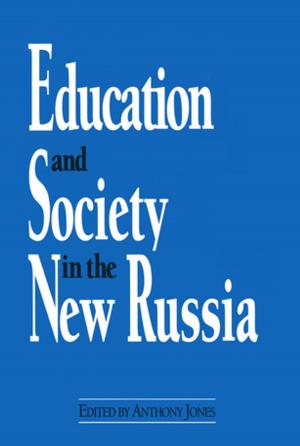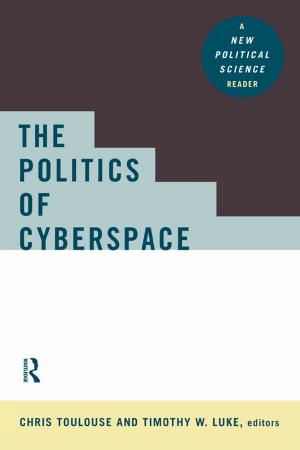Commissioning Truths: Essays on the 30th Anniversary of Nunca Más
Nonfiction, Social & Cultural Studies, Political Science| Author: | Robin Kirk | ISBN: | 9781370770977 |
| Publisher: | Robin Kirk | Publication: | September 19, 2016 |
| Imprint: | Smashwords Edition | Language: | English |
| Author: | Robin Kirk |
| ISBN: | 9781370770977 |
| Publisher: | Robin Kirk |
| Publication: | September 19, 2016 |
| Imprint: | Smashwords Edition |
| Language: | English |
This collection of essays by human rights scholars and activists examines the legacy of Argentina's "Never Again" (Nunca Más) commission, the first impartial examination of atrocities committed against a civilian population. Released on September 20, 1984, “Never Again” documented abuses committed by the security forces during the military dictatorship of 1976-1983. Researched and written by the government-sanctioned National Commission on the Disappearance of Persons (Comisión Nacional sobre la Desaparición de Personas, CONADEP), the report drew on over 50,000 pages collected by researchers who traveled across Argentina and the world to interview survivors and collect evidence. Researchers confirmed the forced disappearance of 8,961 persons from 1976 to 1983, estimating that the actual number could be much higher. The report noted that death squads operating with government support executed almost 500 people. During the dirty war, over 300 secret detention centers operated as torture and death centers. The report dramatically reasserted the power of truth, in this case fact-collection and eye-witness testimonies of the killings and torture that largely took place in secret. Prior to 1974, the only other influential example of accountability were the Allied trials of Nazi officials at Nuremberg, held by the victors. “Never Again” was the first time a government authorized an independent entity to investigate its former -- and often current -- employees. As political scientist Kathryn Sikkink has written, “Never Again” was an early part of what she calls a “justice cascade” and is a milestone for the modern human rights movement. “Argentine human rights activists were not just passive recipients of this justice cascade but instigators of multiple new human rights tactics and transitional justice mechanisms, including the trials of the juntas and the 1984 truth commission.” The emphasis in “Never Again” on fact-collection, accountability and memory have inspired human rights interventions in places as different as South Africa, where the Truth and Reconciliation Commission helped ease a transfer to democracy from apartheid; and Greensboro, North Carolina, site of the first US-based commission. Commissioning Truths: 30 Years after “Never Again” was a yearlong critical examination of the history and practice of truth commissions pioneered by “Never Again.” Hosted at Duke University by the Duke Human Rights Center@the Franklin Humanities Institute and cosponsored by the Human Rights Archive at the Rubenstein Library, the series sought to recognize the importance of “Never Again“ while at the same time examining the current and future of truth in a human rights context.
This collection of essays by human rights scholars and activists examines the legacy of Argentina's "Never Again" (Nunca Más) commission, the first impartial examination of atrocities committed against a civilian population. Released on September 20, 1984, “Never Again” documented abuses committed by the security forces during the military dictatorship of 1976-1983. Researched and written by the government-sanctioned National Commission on the Disappearance of Persons (Comisión Nacional sobre la Desaparición de Personas, CONADEP), the report drew on over 50,000 pages collected by researchers who traveled across Argentina and the world to interview survivors and collect evidence. Researchers confirmed the forced disappearance of 8,961 persons from 1976 to 1983, estimating that the actual number could be much higher. The report noted that death squads operating with government support executed almost 500 people. During the dirty war, over 300 secret detention centers operated as torture and death centers. The report dramatically reasserted the power of truth, in this case fact-collection and eye-witness testimonies of the killings and torture that largely took place in secret. Prior to 1974, the only other influential example of accountability were the Allied trials of Nazi officials at Nuremberg, held by the victors. “Never Again” was the first time a government authorized an independent entity to investigate its former -- and often current -- employees. As political scientist Kathryn Sikkink has written, “Never Again” was an early part of what she calls a “justice cascade” and is a milestone for the modern human rights movement. “Argentine human rights activists were not just passive recipients of this justice cascade but instigators of multiple new human rights tactics and transitional justice mechanisms, including the trials of the juntas and the 1984 truth commission.” The emphasis in “Never Again” on fact-collection, accountability and memory have inspired human rights interventions in places as different as South Africa, where the Truth and Reconciliation Commission helped ease a transfer to democracy from apartheid; and Greensboro, North Carolina, site of the first US-based commission. Commissioning Truths: 30 Years after “Never Again” was a yearlong critical examination of the history and practice of truth commissions pioneered by “Never Again.” Hosted at Duke University by the Duke Human Rights Center@the Franklin Humanities Institute and cosponsored by the Human Rights Archive at the Rubenstein Library, the series sought to recognize the importance of “Never Again“ while at the same time examining the current and future of truth in a human rights context.















